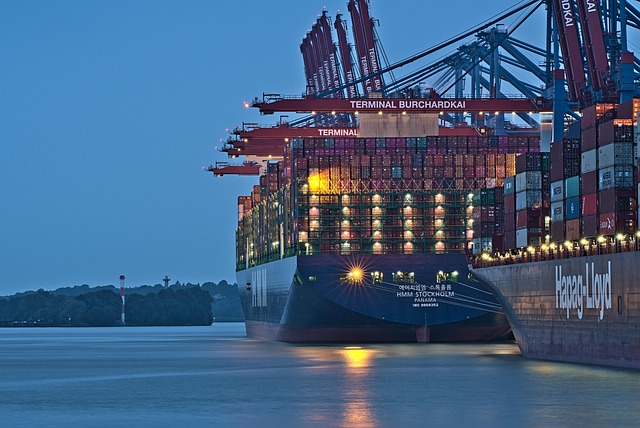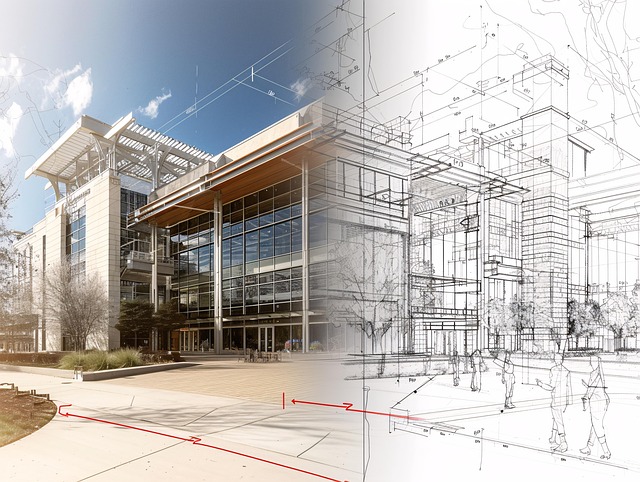Gas-fired water heaters are vital for commercial environments, offering reliable hot water access for diverse applications like hotels and restaurants. Both tanked and tankless systems cater to varying needs with storage heaters meeting consistent demand and tankless models handling high-capacity scenarios. Durable construction, advanced safety features, and energy efficiency make them ideal for large facilities. Selection factors include capacity, system type, application, energy source, space, maintenance, and budget. Proper installation, regular maintenance, and safety measures maximize performance and longevity in demanding industrial settings, with successful case studies highlighting their reliability and durability.
Gas-fired water heaters are a reliable solution for commercial spaces demanding consistent hot water. Built to withstand rigorous use, durable models offer efficient heating with advanced safety features. This comprehensive guide explores the intricacies of commercial gas-fired water heaters, highlighting their role in various industries. From understanding their key components to choosing the right fit and ensuring optimal maintenance, we provide insights for successful integration. Discover case studies showcasing their longevity in demanding environments, making a strong case for these heaters as essential infrastructure.
- Understanding Commercial Gas-Fired Water Heaters: Their Role and Importance
- Key Features and Benefits of Durable Models Designed for Rugged Use
- Choosing the Right Gas Fired Water Heater for Your Commercial Space: Factors to Consider
- Installation, Maintenance, and Safety Guidelines for Optimal Performance
- Case Studies: Successful Implementation and Longevity in Challenging Environments
Understanding Commercial Gas-Fired Water Heaters: Their Role and Importance

Gas-fired water heaters are indispensable in commercial settings, playing a pivotal role in ensuring consistent access to hot water for various applications. These heaters are designed to meet the demanding needs of businesses, from restaurants and hotels to institutional facilities. Their reliability is crucial for maintaining operational efficiency, especially in high-traffic areas where hot water demand fluctuates throughout the day.
Commercial gas fired systems offer both tanked and tankless options, catering to diverse requirements. Storage water heaters provide a reliable source of hot water with large capacities, suitable for institutions and establishments with consistent hot water needs. Tankless water heaters, on the other hand, are designed for rugged use in demanding environments, delivering instant hot water without the need for storage tanks, making them ideal for high-capacity applications like hotel hot water systems and restaurant water heating.
Key Features and Benefits of Durable Models Designed for Rugged Use

Durable commercial gas-fired water heaters are designed to withstand the rigors of constant use in demanding industrial settings like restaurants and hotels. These models boast several key features that enhance their performance and longevity, making them reliable solutions for commercial water heating needs. One notable advantage is their robust construction, utilizing high-quality materials to ensure they can handle heavy workloads without compromising efficiency. This durability translates into reduced maintenance and replacement costs over time.
Additionally, many durable gas-fired heaters offer advanced safety features, such as automatic shut-off valves and temperature controls, which are crucial for preventing accidents in institutional settings. Their energy efficiency is another significant benefit, as they can significantly lower operational expenses by minimizing heat loss through state-of-the-art insulation and advanced combustion technology. These heaters cater to high-capacity requirements, making them ideal for large facilities that demand consistent access to hot water, ensuring smooth operations across various applications in the commercial gas heaters market, from restaurant water heating to hotel hot water systems.
Choosing the Right Gas Fired Water Heater for Your Commercial Space: Factors to Consider

When selecting a commercial gas-fired water heater, several key factors come into play to ensure optimal performance and longevity in demanding industrial settings. First and foremost, consider the commercial water heating capacity required to meet your space’s hot water demands. High-capacity heaters are designed for rugged use in restaurants, hotels, and institutional facilities, offering reliable hot water supply for various applications.
The type of gas fired systems you choose—storage or tankless water heaters—is another critical consideration. Storage water heaters are cost-effective and efficient, storing hot water in a tank to ensure a consistent supply. Tankless heaters, on the other hand, provide on-demand hot water without storage, saving space and enhancing energy efficiency, which is essential for institutional water heating applications. Additionally, factor in factors like energy source availability, space constraints, maintenance requirements, and budget to make an informed decision tailored to your commercial gas heater needs.
Installation, Maintenance, and Safety Guidelines for Optimal Performance

Proper installation and regular maintenance are key to ensuring optimal performance from durable commercial gas-fired water heaters designed for rugged use. When installing these powerful systems, it’s crucial to adhere to manufacturer guidelines regarding ventilation, gas line pressure, and distance from combustible materials. Professional installers should assess the space and choose the right size and type of heater, whether tanked or tankless, based on the expected demand and application—from restaurant water heating to hotel hot water systems and institutional water heating needs.
Maintenance involves periodic checks for leaks, proper drainage, and cleaning or replacement of filters as recommended by the manufacturer. For gas fired systems, ensuring a constant supply of fresh air is essential for efficient combustion and safety. Additionally, regular inspection and testing of the gas lines and appliances by qualified professionals is vital to prevent accidents and ensure compliance with local codes. Prioritizing safety measures, such as proper ventilation and leak detection systems, will not only extend the life of commercial water heating equipment but also create a safer environment for staff and occupants in institutional settings.
Case Studies: Successful Implementation and Longevity in Challenging Environments

In the realm of commercial water heating, durable gas-fired water heaters designed for rugged use stand out as reliable solutions in challenging environments. Case studies across various sectors highlight their successful implementation and longevity. For instance, in remote industrial sites where access to electricity is limited, high-capacity gas fired systems have proven indispensable. These systems, including both tankless water heaters and storage models, offer consistent hot water supply for operations ranging from oil drilling to construction sites.
Hotels and restaurants, demanding constant hot water for guests and customers alike, also benefit significantly. Commercial gas heaters in these institutional settings not only meet peak demands but also contribute to energy efficiency through advanced technology. For example, tankless water heaters eliminate the need for large storage tanks, reducing energy wastage and providing instant hot water when needed most. This ensures optimal performance and minimizes downtime, crucial factors for any successful commercial operation.
Durable commercial gas-fired water heaters are not just essential equipment; they are reliable workhorses designed to withstand demanding environments. By understanding their key features, selecting the right model, and adhering to installation and maintenance best practices, businesses can ensure optimal performance and longevity. These water heaters play a crucial role in maintaining operations across various industries, proving that quality commercial gas fired water heaters are indeed investments worth making for any business owner.
